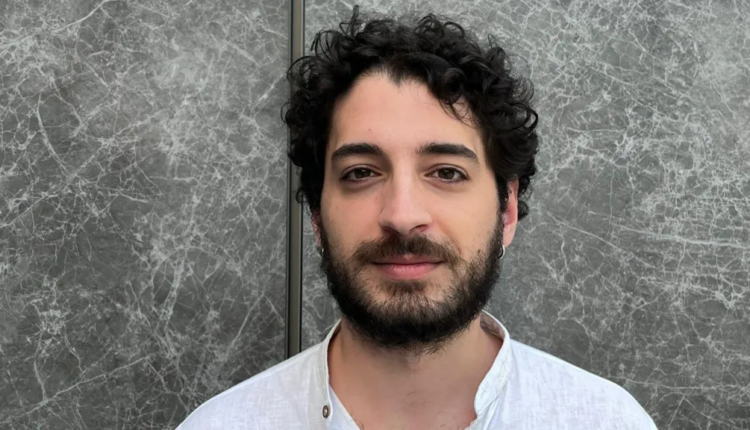Rosario Lonegro was only 20 years old when he entered a Catholic seminary in Sicily as an aspiring priest preparing to be ordained. But while he was there he fell in love with another man and his superiors demanded that he undergo conversion therapy intended to erase his sexual preferences if he wanted to continue on the path to the priesthood.
“It was the darkest period of my life,” he told the BBC, recalling his seminary experience in 2017.
Haunted by guilt and fears of committing a sin in the eyes of the Catholic Church, Rosario said he “felt trapped with no choice but to suppress my true self”.
“The psychological pressure to be someone I was not was insurmountable. I could not change no matter how hard I tried.”
For more than a year, he was compelled to take part in spiritual gatherings outside the seminary, some over several days, where he was subjected to a series of distressing activities intended to strip him of his sexual proclivities.
These included being locked in a dark closet, being coerced to strip naked in front of fellow participants, and even being required to enact his own funeral.
During these rituals, he was tasked with committing to paper his perceived flaws, such as “homosexuality”, “abomination”, “falsehood” – and even more explicit terms, which he was then obliged to bury beneath a symbolic gravestone.
‘I thought I needed to be cured’
The World Health Organization (WHO) removed homosexuality from its list of mental disorders in 1990. Subsequent scientific research has largely concluded that attempts to change sexual orientation are not only ineffective but also harmful.
In France, Germany and predominantly Catholic Spain, conversion therapies have been officially banned, and efforts are under way both in England and Wales to outlaw such practices.
Today in Italy, it’s nearly impossible to determine the precise extent of these practices, reported mostly by men, but some women too, and there is no standard legal definition of them.
In recent months, however, the BBC has conducted interviews with several young gay men across the country who have shared their experiences of being subjected to pseudoscientific group meetings or individual therapy sessions aimed at turning them into heterosexuals.
One 33-year-old man who attended this type of meeting for over two years expressed his initial motivation, saying: “I wanted to reconcile with myself. I didn’t want to be homosexual. I thought I needed to be cured.”
“I saw that as my sole path to acceptance,” said another. He was not trying to become a priest, but was simply seeking acceptance in his daily life.
Gay conversion therapy is not limited to one specific region of Italy – group meetings and individual therapy sessions run across the country, some even run by licensed psychotherapists. In some cases, these gatherings and therapy sessions are unofficial and covert, often promoted through discreet conversations and secret referrals.
Other courses are publicly advertised, with known figures within Italy’s conservative circles actively seeking followers online and on social media platforms to promote their ability to change sexual orientations.
In Sicily, Rosario Lonegro was primarily subjected to meetings organised by the Spanish group Verdad y Libertad (Truth and Freedom), under the leadership of Miguel Ángel Sánchez Cordón. This group has since disbanded, having incurred the disapproval of the Catholic Church.
However, the Italian priest who originally pushed Lonegro into these practices was given a senior position within the Church, while others continued to draw inspiration from Sánchez Cordón’s methods in Italy.
Many of the people the BBC spoke to were referred to Luca di Tolve, a “moral/spiritual trainer” who gained recognition through his book titled “I was gay once. In Medjugorie I found myself”.
On his website, Di Tolve and his wife boast that they are a “contented couple” seeking to “aid anyone whose sexual identity is in turmoil, helping them to genuinely exercise their freedom in determining who they wish to be as a person”. When contacted by the BBC, Di Tolve did not respond.
Another active individual promoting ways to tackle perceived sexual orientation is Giorgio Ponte, a well-known writer in Italy’s ultra-conservative circles. He says he wants to help people overcome their homosexuality and be liberated, by telling his own story as a man with homosexual drives who is on his “potentially life-long” path to freedom.
“In my experience, homosexual attraction stems from an injury to one’s identity that conceals needs unrelated to the sexual-erotic aspect but rather tied to a distorted perception of oneself, reflecting across all aspects of life,” he told the BBC.
“I believe that a homosexual person should have the freedom to try [to become heterosexual], if they want, knowing, however, that it may not be possible for everyone,” he added.
Source: BBC


Comments are closed.